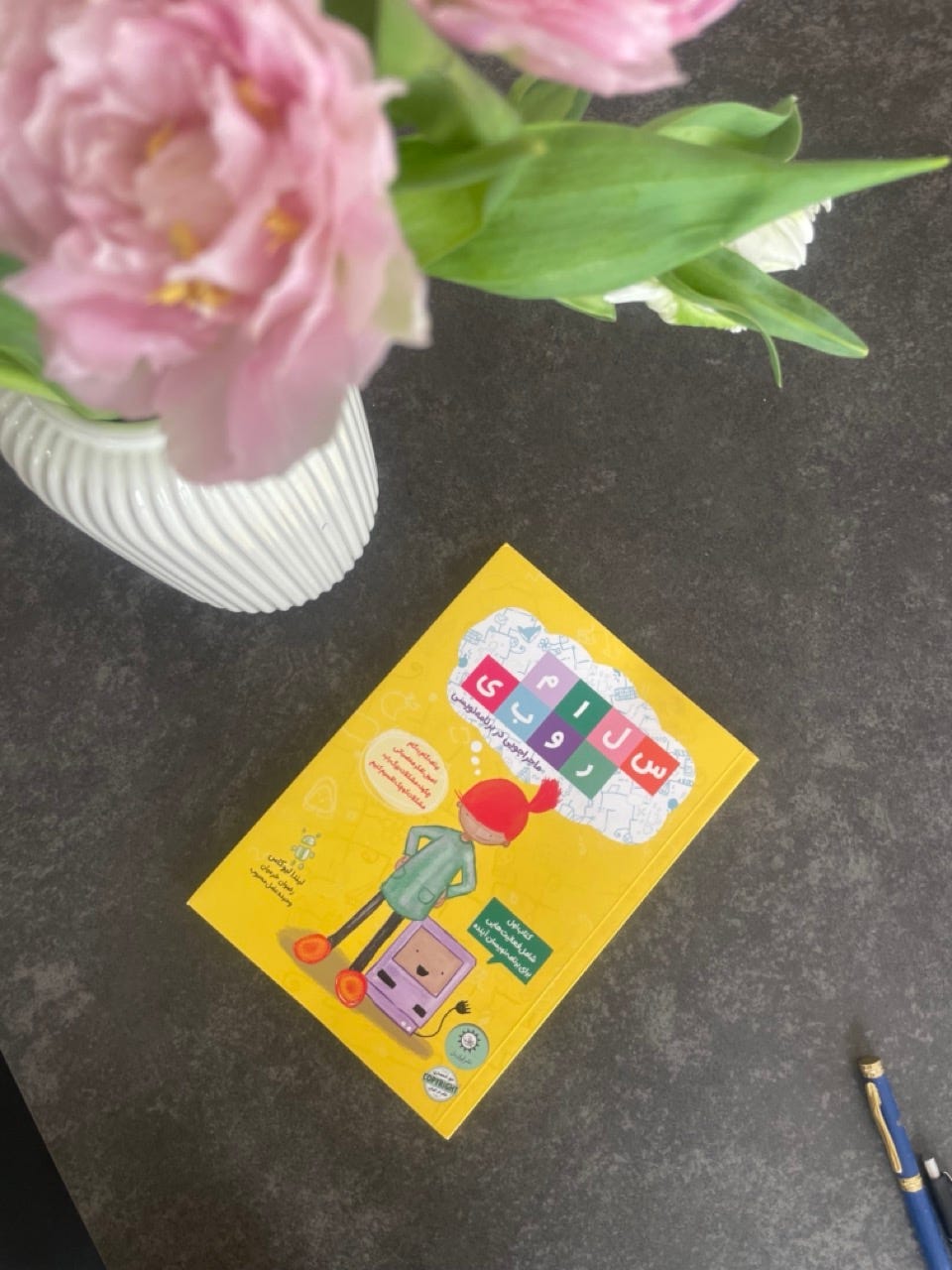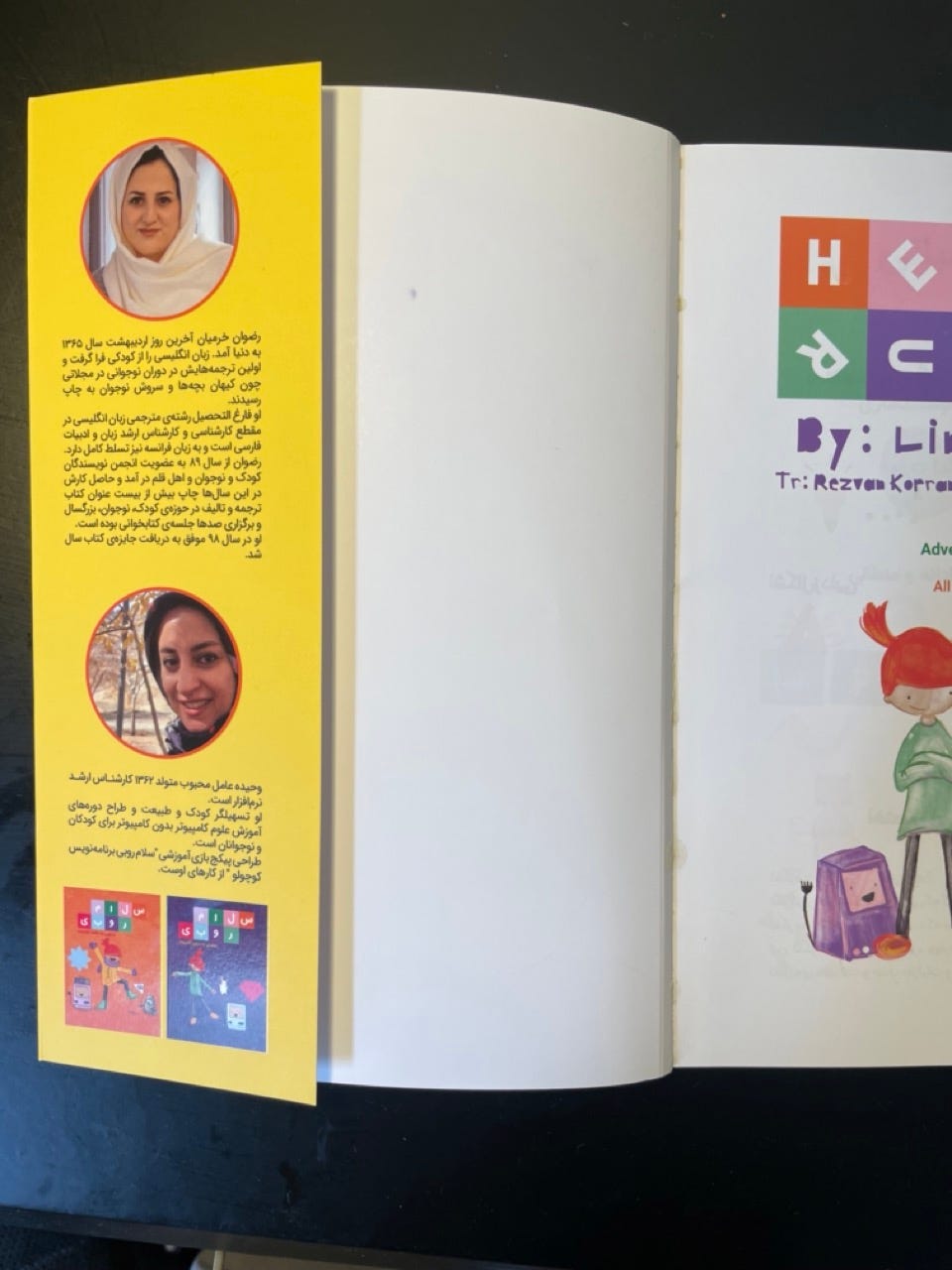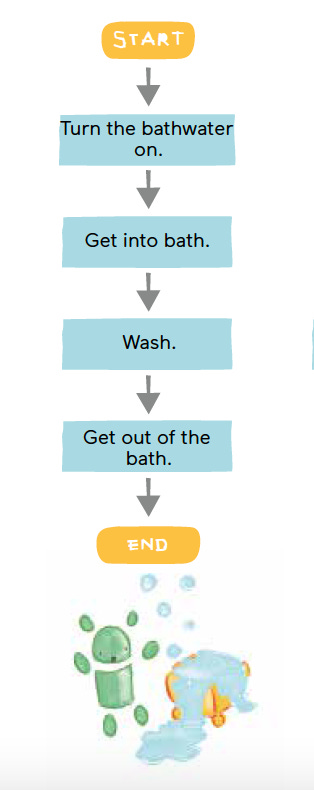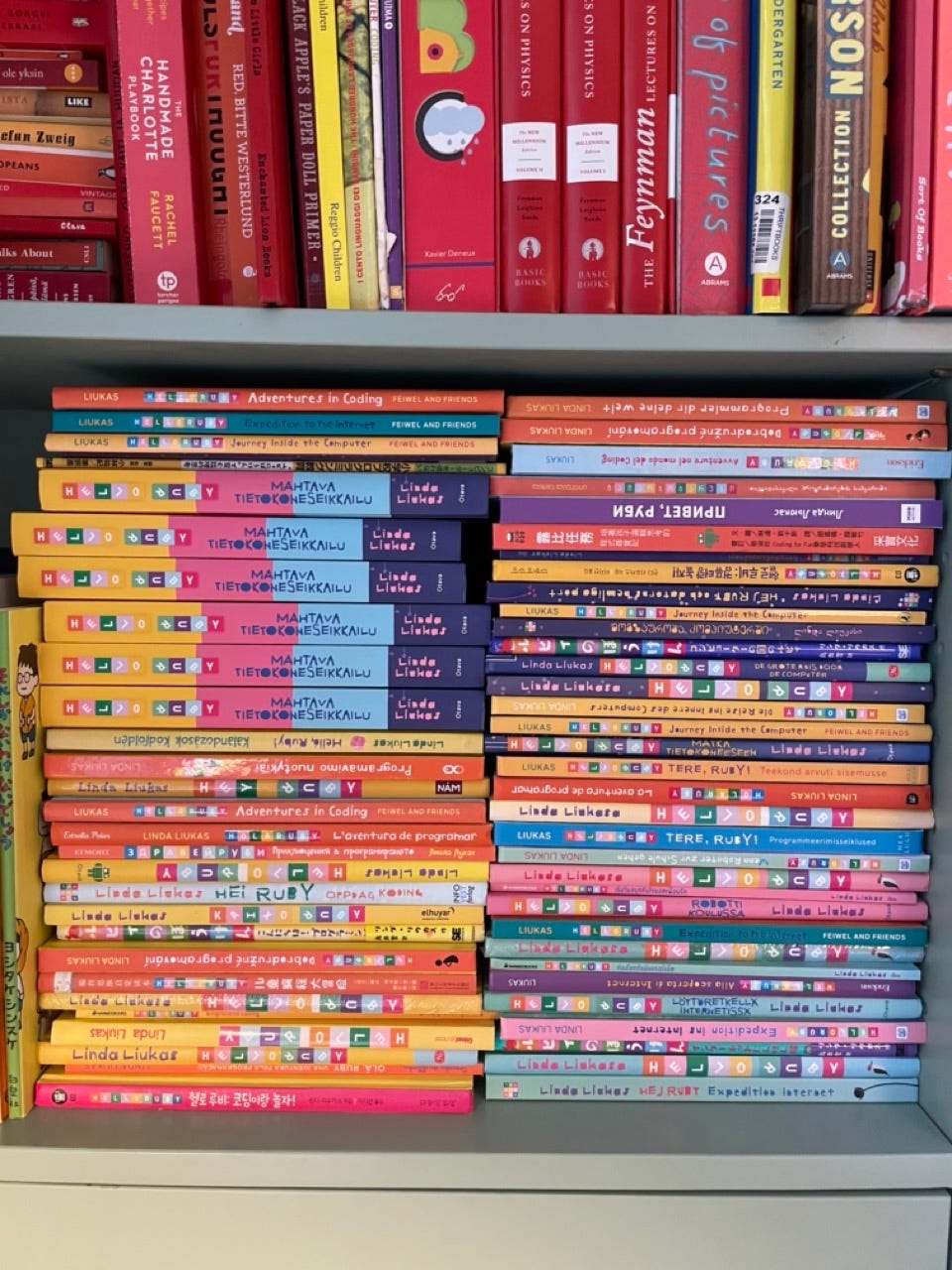No. 52 - On Translation ⫶ The annoying PPP ⫶ Faraday & Babbage
It's my language, but it is also someone else
My name is Linda. I write a bi-weekly newsletter about computer science, childhood and culture - and there are 9 723 of you listening. If you enjoy this issue, please share it with anyone you think may find it useful.
A few weeks ago, I received the Farsi edition of Hello Ruby. It marks the 37th official translation of the book. The dust jacket includes the two translators' names, pictures, and bios.
I found the gesture lovely and a great reminder of how it's time to start naming a book's translators on the cover.
So this one is a thank you to all my translators - with all the different language versions, the Hello Ruby universe is far richer and far more interesting than I ever anticipated. Translation requires creativity, imagination, and empathy.
Even though most people who work in computer science will need to learn English at some point, translations allow especially children to access these ideas and have a common conversation.
When the first Hello Ruby books came out, I wrote translation guides for each book. They took a long time to make and made me appreciate translators' work. Taking a children's story and combining it with the strict definitions of computing is a challenging task.
The language needs to be malleable and straightforward yet playful and versatile. In many languages, the computing vocabulary doesn't exist; if it does, it has a crummy 1970s feel. For example, the word bug has been tough to translate. Words like sequence, debugging, and even true/false have had multiple meanings. There was no word for cupcakes in Latvia, so they came up with their own - smukkekeksij! My Italian translator is the master of detail: her e-mails are a delight, always give me new viewpoints, and include questions like this:
Worksheet "Masterbuilders...": I checked online and saw that Masterbuilder is a name that is used in the game Minecraft: is it an intended reference, or can I simply use the Italian correspondent of the word (that has got to do with the head of the team of people building a house)?
The mouse has a tail and blue teeth: I get it; a mouse can have a chord or be Bluetooth. The fact that the teeth are plural is because you want the reference to be subtle? In Italian, probably not many people would infer Bluetooth from blue teeth....
I notice some of your characters "exhale": I think you've deliberately chosen this verb, instead of using say, mention, breathe out, or whisper. Has it got to do with the fact that some of these components need a fan to reduce the temperature? (I might be delirious here :) .
And it's not only the language that requires translation - sometimes, it's entire ideas. In the Japanese version, translator Yuki Tori noticed a problem in one of the exercises where the children were asked to debug a program.
In Japanese, it's not customary to wash yourself in the bath. First, you wash under the shower and then relax in the bath. We changed the wording a bit.
Translation is a collaboration. In the books, it's my language, but it is also someone else - the text has decisions and elements that are not mine, stylistic and pedagogical. And that makes them so much better.
Linked List
In computer science, a linked list is a linear collection of data elements whose order is not given by their physical placement in memory. But here it is a selection of things I’ve been reading lately.
Math from Three to Seven by Alexander K. Zvonkin (PDF). The last letter on scale started many thoughts - the most incredible thing I accidentally found on the topic is this book that chronicles the experience of a professional mathematician conducting a math circle for preschoolers in his apartment in Moscow in the 1980s. There is something so heartwarming about the book's style, structure, and sense of direction. I wish there was something like this in teaching computer science.
The annoying PPP. Xiaolu Guo’s lovely recounting of the peculiarities of English. I run into to this all the time. “I particularly detested the past-perfect progressive tense, which I called the Annoying PPP: a continuous action completed at some point in the past. I felt giddy every time I heard the Annoying PPP; I just couldn’t understand how anyone was able to grasp something so complex. For example, my grammar book said: “Peter had been painting his house for weeks, but he finally gave up.” My immediate reaction, even before I got to the grammatical explanation, was: my God, how could someone paint his house for weeks and still give up? I just couldn’t see how time itself could regulate people’s actions as if they were little clocks! As for the grammar, the word order “had been” and the added flourishes like “ing” made my stomach churn. They were bizarre decorations that did nothing but obscure a simple, strong building. My instinct was to say something like: “Peter tries to paint his house, but sadness overwhelms him, causing him to lay down his brushes and give up his dream.””
Faraday and Babbage: Semiconductors And Computing in 1833. I'm neck deep in researching some of these chance encounters in the history of computers, how many diverse fields needed to come together for the computer to happen (and what alternative stories there might have been). This one is delightful.
Classroom
I’m hoping to surface and share stories from all of you and I’d love to see your creations! Here are a few teachers using Ruby in creative, fun and inspiring ways.
An Italian teacher documents her students learning. Maria created activities around each book chapter - I especially like the Snow Leopard's ladders and pixel Ruby!el Ruby!
Ms. Bugryn’s students make their own computers!







